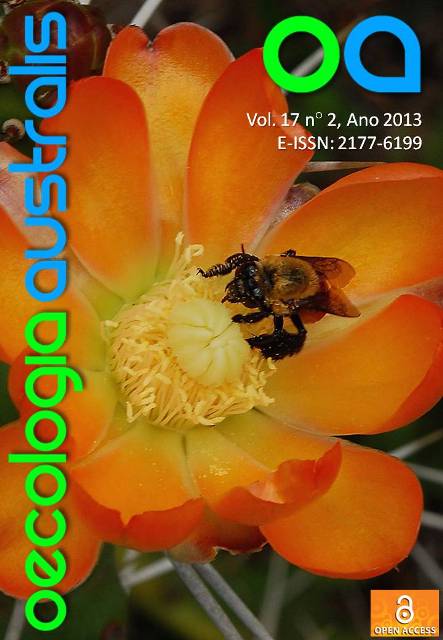HISTORICAL APPROACHES IN THE STUDY OF PLANT-POLLINATOR INTERACTIONS
Keywords:
polinização, evolução, filogenia, registro fóssil, coevoluçãoAbstract
Interactions between plants and pollinating animals are well-known examples of interspecific mutualism, which involves reciprocal adaptations and can lead to coevolution. In plant-pollinator interaction the concept of coevolution is frequently inappropriate since the majority of interactions is non-obligate and makes conflicting patterns of association between species. Due to the diffuse nature of this kind of interaction, there is an attempt to divide the interactions in classes of specialization, such as the floral syndromes. Ecological approaches could be applied in the study of those interactions (for example, the floral visitor records and behavior and pollinator efficiency, among others), not necessarily based in the historical or evolutionary view of the interaction. In the present review two approaches in the historical view of the plant-pollinator interaction are presented according to their main methods and some examples. The first approach is regarding to the fossil record of interaction, which is rare and could be indirect, when a fossil animal presents morphological characters previously known for a particular kind of interaction; or direct, when the process of fossilization have occurred in the exact moment of the interaction, preserving together animals and plants (or parts of plants). The second part of the revision is regarding to phylogenetic hypothesis and is divided in four different approaches: (1) mapping characters in phylogeny; (2) estimating the age of interactions; (3) co-phylogenies and (4) association between phylogenetic and biogeographical hypothesis. Parsimony and/or model-based method are present in all revised papers and their efficacy is also discussed. The use of phylogenetic hypothesis is suggested as the most important approach in the study of evolution of those interactions and, within this line of thought, the ancestral state character reconstruction and mapping them in the phylogeny is the base of a main part of our knowledge about the evolution of plant-pollinator interactions. However all those approaches require the availability of good collected ecological data, which is a major challenge for the understanding of those interactions in the Neotropical biota.


